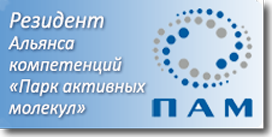Functional eligibility of Iodcasein for iodine deficiency prophylaxis
Авторы: Tsyb A.F., Roziev R.A., Goncharove A.Ya., Grigoriev A.N., Skvortsov V.G., Bozadjiev L.L., Podgorodnichenko V.K., O.V. TomchaniГод: 2001
Издание: Herald of the Russian Academy of Medical Sciences
скачать файл ( *.pdf 103 Кб )
Реферат
Functional eligibility of Iodcasein (made by Medbiopharm company) was studied in vivo and in vitro by radiometric methods. Tests were performed in 170 white outbreed rats. Animals were divided into two groups; the first group had iodine deficient diet and the second one had solution of iodcasein, containing up to 5 mcg of iodine applied every day during a week. For the purpose of biological tests, chromatography pure 131I-labeled Iodcasein with activity of 370 kBq was performed. As the source of iodine in the experiment, Na131I, 370 kBq activity per head, similar in iodine action to potassium iodide, was used. Obtained in the present study results aloow to make following conclusions:
1. When Iodcasein is entered under iodine deficiency state, thyroid consumes iodine in greater amount in comparison with inorganic salt.
2. The peak of iodine accumulation under Idcasein injection is observed in four hours; when iodized salt is injected – only in 2 hours. The elimination of iodine, entering into an organism in the form of Iodcasein under iodine deficiency, was slower.
3. Dynamics of thyroid iodine accumulation-elimination under 131I-casein injection was similar in iodine sufficient and iodine insufficient animals. Iodine accumulation was higher at iodine deficiency.
4. When iodine is entered in inorganic form, it retention in thyroid was significant greater in iodine sufficient animals that in iodine insufficient animals.
5. The results of study of iodine elimination when iodine is entered in organic form (Iodcasein) prove liver participation in iodine metabolism.








